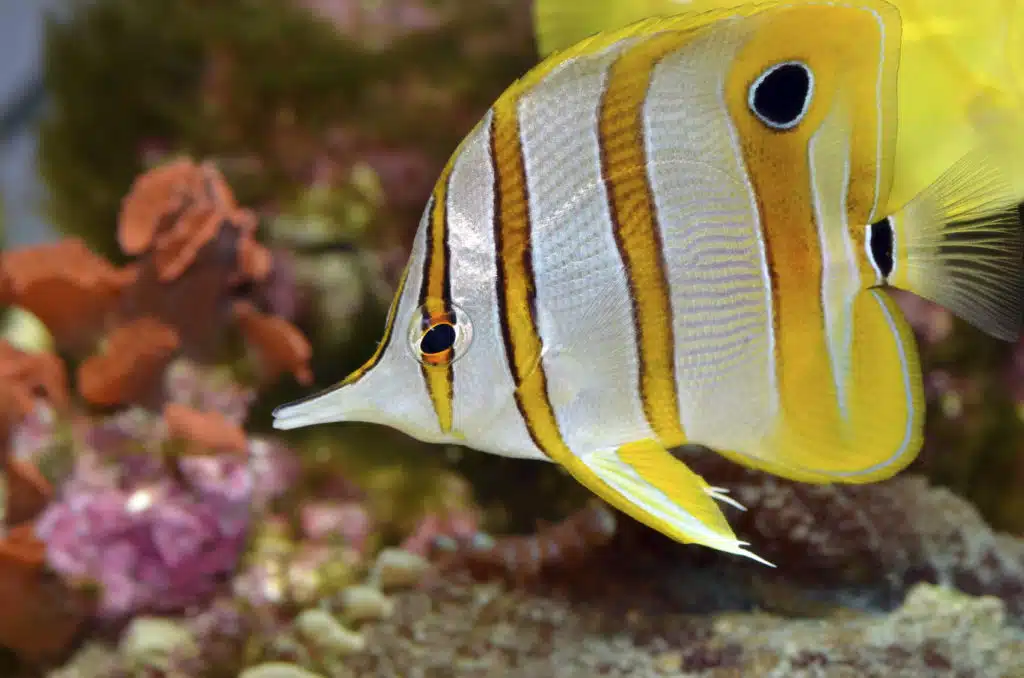New work to be published in Nature shows that small ‘Cleaner fish’ really do help keep reef fish healthy by picking parasites from them up to 150 times a day.
‘Cleaner’ fish really do keep reef fish clean
Reef fish call in for a “full-body wash and detail” from small ‘cleaner’ fish up to 150 times a day. This causes a daily drop in parasite loads according to new research published in Nature (22 April) and reported today (6 May) at the ScienceNOW conference in Melbourne.
Dr Lexa Grutter from the University of Queensland has found that at Lizard Island ‘cleaner’ fish clean up to 2,500 reef fish per day by each eating about 1,200 parasites a day.
Controversy has raged for many years amongst biologists about the relationship between the small ‘cleaner’ fish and their often largerfish ‘clients’. Some thought the bigger reef fish were altruistically helping the small ‘cleaner’ fish to a free feed while others thought that the bigger fish enjoyed the feel of the ‘cleaner’ fish scurrying about their skin.
“My research has shown once and for all that a special relationship exists between the different species of fish where they both benefit,” Dr Grutter says. “This relationship is driven by the very common marine fish parasite, ‘gnathiid isopod’, which is much like the ticks we find on land.
“Often the reef fish will actively seek out the small ‘cleaner’ fish and pose motionless, spreading out their fins to give the ‘cleaner’ fish easy access to the parasites. Some even open up their mouth and gills to the ‘cleaner’ fish.”
Dr Grutter has spent over three thousand hours under water in Hawaii and over the past eight years on the Great Barrier Reef studying the relationship between the different fish species.
She found that fish with parasites actively sought out the ‘cleaner’ fish while those without parasites didn’t. By studying fish in special underwater cages, she also found out that fish are attacked by parasites constantly.
“We studied the parasites back in the laboratory, and found out that they only stayed on the fish until they were full of blood and then they would drop off,” Dr Grutter says. “This could take from a few minutes to an hour, but showed that fish are attacked by many of these parasites each day.”
Dr Grutter compared the numbers of parasites on caged fish when they had access to ‘cleaner fish’ and when they did not. She found there could be four times as many parasites on fish who didn’t have access to the ‘cleaner’ fish than those that did.
“Understanding the role of ‘cleaner’ fish in maintaining a healthy reef fish population will assist reef managers to better protect these fish,” she says.
“There are also important implications to the aquaculture industry. If reef fish are to be farmed they will need their associated ‘cleaner’ fish along to keep them healthy”.
Photo: Dr. Lexa Grutter on boat at Lizard Island removing fish from cages and placing then in buckets. (Photo: courtesy of and copyright Mark A. Johnson)





 Fresh Science is on hold for 2022. We will be back in 2023.
Fresh Science is on hold for 2022. We will be back in 2023.